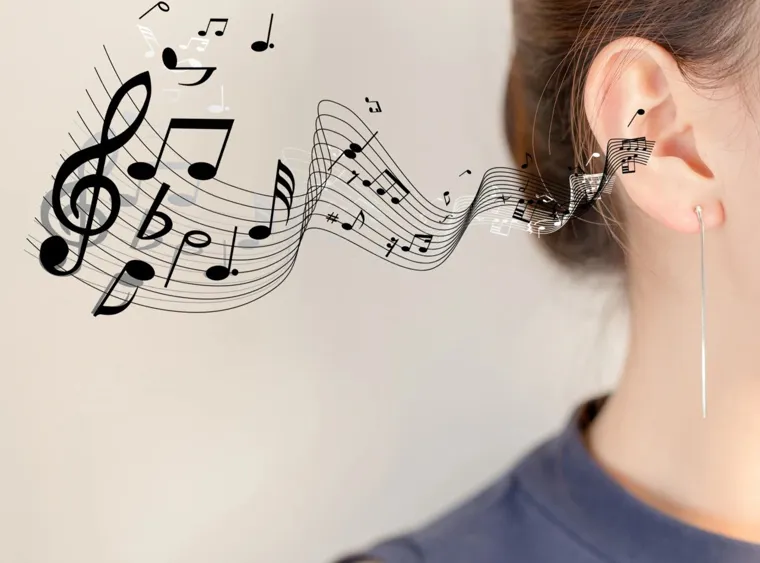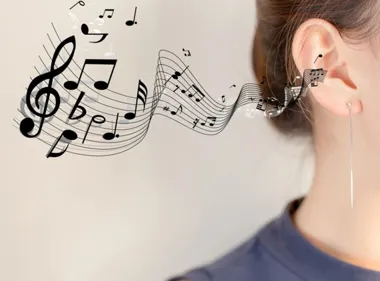música para dormir: 5 estilos ideales para un buen descanso

Título: Music for Sleep: 5 Ideal Styles for a Good Rest Perfil: Sleep music is popular in the face of modern insomnia. This article provides tips on how to choose it and addresses the phenomenon of musical earworms. Palabra clave: ['Mental Health', 'Sleep']
We spend one-third of our lives sleeping.
A quality sleep is an important guarantee for health.
However, as the pace of life speeds up and life pressure increases.
The incidence of insomnia is increasing year by year.
Many people enjoy listening to music to help them sleep.
Listening to music before bed can indeed improve sleep. Many studies have shown that appropriate music can help relax the body and mind, reduce stress and anxiety, thereby enhancing sleep quality. Soft music can lower heart rate and blood pressure, promoting relaxation at night. Furthermore, choosing melodious and slow-tempo music types usually aids falling asleep. Therefore, for those suffering from insomnia or poor sleep quality, listening to calming music before bed is a good option.
Music that can help with sleep typically includes soft classical music, nature sounds, and some light music specifically composed for relaxation and meditation. Here are some suggestions: 1. Classical Music: Soft melodies from composers like Bach, Debussy, and Chopin. 2. Nature Sounds: Sounds of waves, rain, and the forest can create a tranquil atmosphere. 3. Meditation Music: Tracks designed for relaxation and meditation often utilize soft instruments and slow tempos. 4. Electronic Relaxation Music: Some calming ambient music can also help to relax the mood. Choosing low-volume, slow-tempo music is more conducive to falling asleep.
Listening to music through headphones while sleeping can pose some risks, including: 1. Hearing Damage: Prolonged use of headphones, especially at high volumes, may cause damage to the ears, leading to hearing loss or tinnitus. 2. Ear Canal Infections: Headphones may encourage bacteria growth, particularly earbud-type headphones, potentially leading to ear canal infections. 3. Decline in Sleep Quality: Although many people are accustomed to using music to aid sleep, it may disrupt deep sleep, affecting overall sleep quality. 4. Lack of Environmental Awareness: Wearing headphones may prevent someone from hearing surrounding sounds, reducing awareness of dangers like fire alarms or doorbells. 5. Neck and Shoulder Discomfort: Maintaining the same position for extended periods, especially while looking down at a phone or other devices, may cause neck discomfort or muscle tension. To mitigate these risks, it is recommended to control volume, use the appropriate type of headphones, take regular breaks, and use them moderately at night.
Is improper music listening leading to 'earworms'?
Today, Huaxi doctors unveil all the secrets.
Traditional Chinese medicine theory holds that there is a close relationship between music and the organs and meridians of the body. During the process of listening to music, it can resonate with the organs of the human body, helping to regulate emotions, balance the lungs, and improve insomnia issues caused by anxiety and depression.
Image source: Shetu Network.
Modern medical research has found that music can trigger a variety of physiological responses, such as lowering blood pressure, reducing respiratory and pulse rates, increasing skin temperature, decreasing muscle tension and skin resistance, increasing vascular volume, and lowering levels of norepinephrine and adrenaline in the blood, which may indicate its effectiveness in combating lack of sleep.
Image source: Publish emoticons.
Related research indicates that using different musical tone vibrations can stimulate specific areas of the brain. This activates the nervous system related to the hypothalamic-pituitary-adrenal axis, thus achieving regulatory effects on the immune system, cardiovascular system, respiratory system, and digestive system, which may be effective in treating insomnia.
Image source: Shetuwang.
Currently, one commonly used method to improve sleep disturbances in depression is the mindfulness music therapy model. Through various specially designed musical behaviors, it aims to eliminate psychological barriers, thereby improving sleep.
Of course, different types of music have different effects on sleep quality, and these effects do not happen overnight. In clinical practice, it is generally observed that listening to music continuously for a period of 2 to 30 weeks or more can improve overall sleep condition.
Fast and strong rhythms, with powerful percussion, stimulate the heart and create increasingly heightened excitement; whereas melancholic and sad music can depress the mood, making them unsuitable for listening before sleeping.
Music serves functions such as softening emotions and relaxing muscles. The musical frequency harmonizes with the vibrations of the human body, and at specific tones, it can stimulate the systems of the organism. In insomnia treatment, music can help prolong sleep duration, shorten sleep latency, and improve sleep efficiency.
Image source: Shetuwang.
Studies have shown that calm, peaceful, and minimally variable music, with a rhythm of 60 to 80 beats per minute, closely aligned with the human heart rate, provides the best sleep aid effects.
Some people prefer to wear headphones to listen to music before sleeping, although this can improve sleep, it may lead to subtle ear pain.
Image source: Shetu Wang.
Using headphones to sleep, especially while lying on one side, can put pressure on the external ear canal. Over time, this may cause muscular fatigue in the ear, leading to problems such as pain and tinnitus and could even damage the inner ear.
Therefore, it is recommended to try to avoid sleeping with headphones and instead use speaker mode to play music, which can improve sleep while protecting the ears.
Image source: Shetu Network.
Additionally, it is suggested that the external sound volume be maintained between 20 to 30 decibels, and do not forget to set the auto-off function (usually within 30 minutes).
The effect of the musical worm does not refer to having worms in the ears, but rather a neural activity in the brain. When the melody of a song enters our ears, it is as if the switch for the auditory cortex in our brain is turned on, waking it up immediately.
In simple terms, it means being 'brainwashed' by a melody, playing it repeatedly in the mind.
'Earworms' occupy memory and work resources in the brain. After listening to music for an extended period before sleeping, slow oscillation activity is detected in the frontal lobe, which is an indicator of memory consolidation dependent on sleep, and is also one of the deep reasons why earworms disrupt sleep.
Image source: Shutterstock.
How to get rid of the 'earworm effect'? Michael Scullin, an associate professor of psychology and neuroscience at Baylor University, suggests that the timing of listening to music is important. First, one can listen to music moderately; if disturbed by 'earworms', one might try temporarily stopping music listening before sleep to observe if sleep quality improves, then decide whether to keep the habit of listening to music before bed.
Therefore, listening to music can improve insomnia, but one must also choose the right method; be careful of 'musical germs'!
What music have you been listening to lately?
I like listening to 'Ordinary Road' to fall asleep.
Leave a comment and share with everyone.
© 2025 Tribu Salud.


